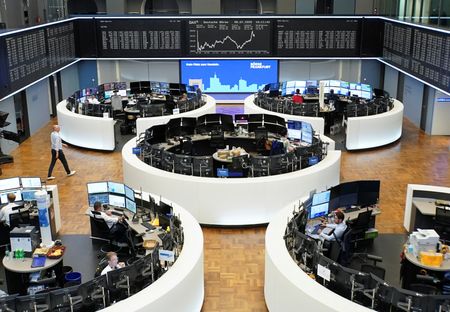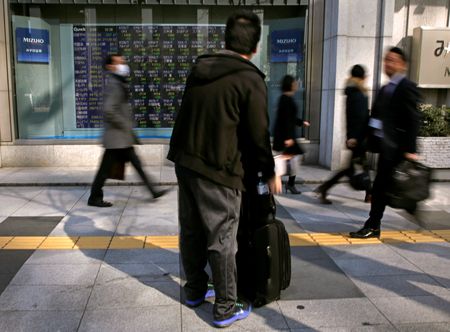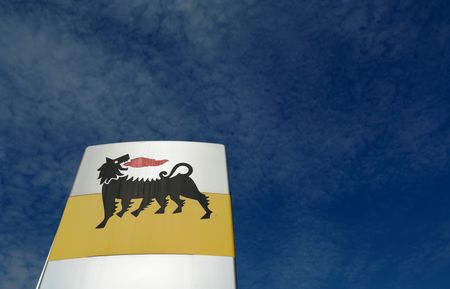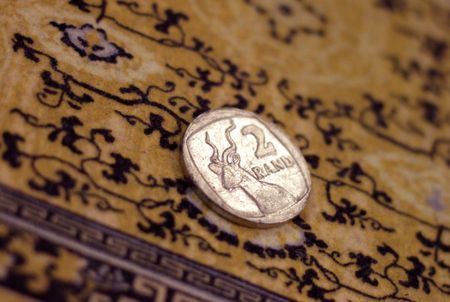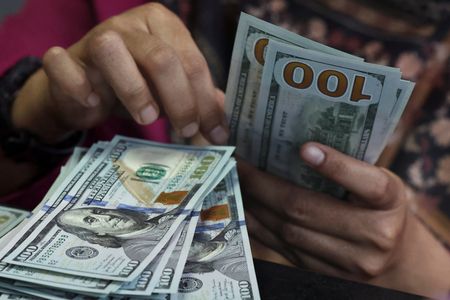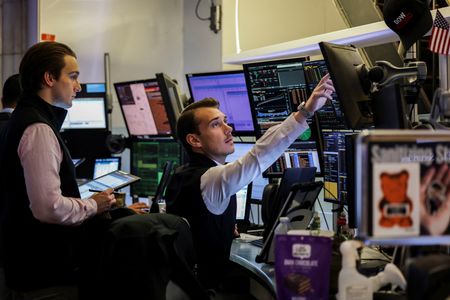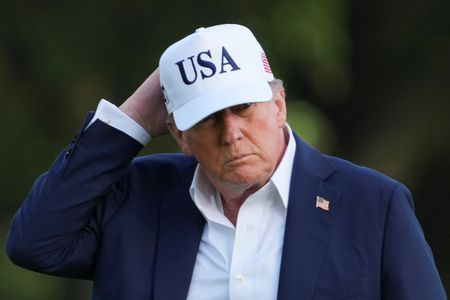By Elizabeth Howcroft
PARIS (Reuters) -European stocks rose on Wednesday as traders seemed untroubled by U.S. President Donald Trump’s announcement that he would impose a 50% tariff on imported copper and soon introduce levies of up to 200% for pharmaceuticals.
Trump’s comments on Tuesday sent the price of copper soaring to record highs and caused Wall Street to close lower.
But equity markets soon shrugged off the news. Asian stocks were mixed overnight and at 0956 GMT the MSCI World Equity Index was up 0.1% on the day.
London’s FTSE 100 was up 0.2% and the pan-European STOXX 600 was up 0.8%.
Wall Street futures pointed to the gains continuing, with S&P 500 and Nasdaq futures both up by 0.1%.
The U.S. dollar index was little changed at 97.567 and the euro was down 0.1% at $1.1714 .
The dollar touched its highest level in more than two weeks against the yen, as Japan, which is dependent on exports, stands out among major U.S. trading partners as being the farthest from reaching a trade deal with Washington.
U.S. copper futures jumped by more than 10% to a record high after Trump threatened new duties on the metal that is critical to electric vehicles, military hardware, the power grid and many consumer goods.
Traders are awaiting further developments in Trump’s trade war in the coming days, after he told 14 nations on Monday that they will face sharply higher tariffs from a new deadline of August 1.
Trump said he would “probably” tell the European Union within two days what rate it can expect for its exports to the United States.
The EU is struggling to get immediate tariff relief from the U.S. and a commitment not to introduce new measures, the head of the European Parliament’s trade committee, which has been negotiating on behalf of the bloc, said on Wednesday.
Investors are concerned that higher tariffs will increase inflation and slow economic growth, and so will pay attention to the latest meeting minutes from the U.S. Federal Reserve, due to be released later on Wednesday, for any clues as to how volatility will affect the outlook for rates.
“We’re really in the dark when it comes to tariffs, because it’s very difficult to know the impact on end-inflation, the impact on margins for U.S. corporates, or corporates in general,” said Amelie Derambure, senior multi-asset portfolio manager at Amundi.
“The uncertainty is immense.”
Derambure said that while equity markets are expecting tariffs to be manageable and are supported by underlying expectations of growth, the impact of tariffs could be seen in the rising yields in fixed income.
U.S. Treasury yields rose on Tuesday, and an auction of three-year Treasury bills saw weak demand.
The Treasury will sell $39 billion in 10-year notes on Wednesday and $22 billion in 30-year bonds on Thursday.
The 10-year U.S. Treasury yield edged back down early on Wednesday, at 4.4072%, compared to Tuesday’s peak of 4.435%, which was its highest in more than three weeks.
European government bonds were little changed, with the benchmark 10-year German yield at 2.637%.
Gold was in its third day of declines, down 0.3% on the day at $3,290 per ounce.
Oil prices rose slightly, with Brent crude futures up by 0.4% at $70.42.
(Reporting by Elizabeth Howcroft; editing by Joe Bavier and Mark Heinrich)

